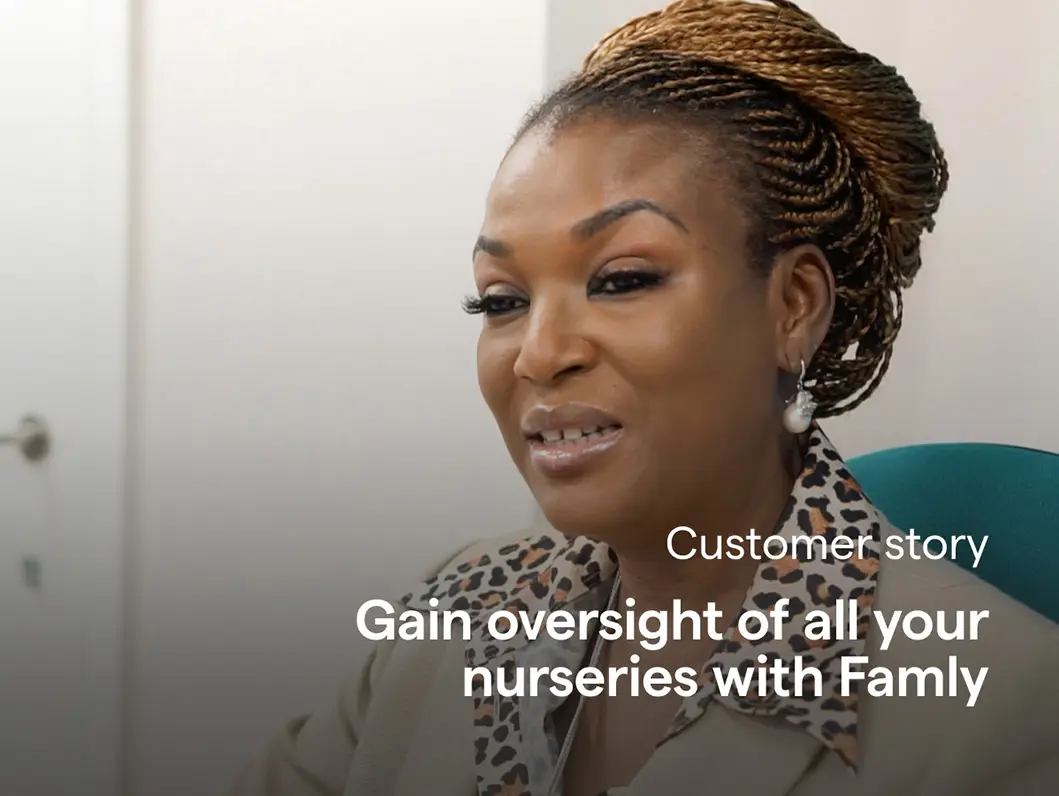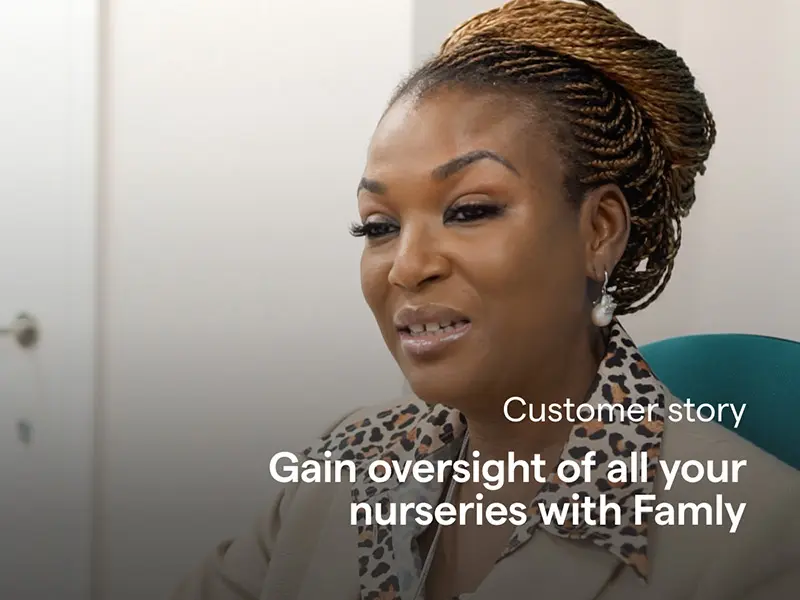settings
children
With Famly since
What is a good early years leadership ? And why does it seem to matter so much to have effective leaders in early childhood education?
Well, we reckon that the impact of a good early years leadership is probably second only to the teaching itself. Effective leadership is what leads to a high-quality learning environment for everyone at your setting, as well as practitioners who are engaged and want to improve.
What’s more, bad leadership can turn the best teams into a straying flock of individuals without much purpose. You, your staff, the parents and, in the end, the children lose out when that happens.
Management vs Leadership in early years
One thing that people regularly get confused about is the difference between management and leadership in early years.
Broadly, the difference is that the management is about the day-to-day running of your setting. It’s strategic planning and effective communication, as well as putting out fires like “we ran out of toilet paper” or “one of my practitioners wants to quit”.
Leadership, on the other hand, is taking a step back and looking at things as a whole unit. Leadership roles are about deciding on the direction you want your nursery to go in with a clear vision, and providing the motivation and education to your early years team to make sure that happens.

"Understand the difference between being a leader and being a manager – these are vital and complementary skills but they are not the same thing. Leaders must be able to identify the strengths of their team and areas for development and approach them both proactively."
- Dr Sue Allingham, Early Years Out of the Box Consultancy
The big ideas

How to be a good leader in the early years sector
Now that we’ve got that sorted out, it’s time to look into a few ideas that might help you to improve the way you lead your team at your early years setting, shape your own leadership style and promote good practice within your team.
1. Write it down
This is where it all starts. Take a pencil and paper or your fanciest word-processing tool and start thinking about what it all comes down to for you and your setting.
What are the key values you want every practitioner in your setting to share and care about? What is the mission that you embarked on when you set out to start your nursery? What makes you unique? What are you looking to achieve? Do you have a clear vision for your early years setting?
Struggling? Don’t worry, we’ve actually written an entire article on how to get this right. Once you’ve finished, put it down on paper. You could even get it framed and post it on the wall if you want to, but what really matters is that you stick by it in everything you do as an early years leader.

2. Effective leadership planning
Now that you have worked out your setting’s clear vision, common values and goals, it’s time to reflect as a team.
Set up channels of communication within your setting that allow everyone to speak up about why they are here, what they want to achieve and so on. Listen and learn how they perceive your own leadership. Leave room for healthy criticism. That’s what an effective leadership in early years is all about.
Another much talked-about subject is teamwork. While cooperation is key to some extent, we all know that some staff work better in a team while others excel on their own.
Good leadership means that you notice these individual differences and put them to good use. Try giving more independent workers activities that require concentration and quiet focus from time to time. Then they can share their work with the team. Teamwork is about everyone bringing in what they are best at and developing that to the advantage of the group.
3. Fair pay and rewards system
Motivation is a key part of an effective leadership in early years. You want motivated staff working for you who can see a career in front of them that they can grow into over the years.
This is also the best thing for your nursery long term, as having experienced practitioners who know your setting and children makes a real difference to the quality of care you can provide.
But that stability can only come with a good and transparent system of payment. While most of us are aware that childcare is never going to be the best-paid profession, clear expectations of what can be achieved in terms of pay and incentives are the next best thing to giving your staff a huge paycheck.
Don’t forget to inform everyone about your rewards and bonus system upfront, as well as how you handle overtime, training time, and provisions for staff when they are sick or on maternity leave.
4. Training and development
You can’t send every member of your staff back to school, but you can make sure that your workplace is an environment that values learning.
This may sound a little overwhelming, but you can start by encouraging your staff to see themselves as people who are open to learning new things, people who recognise the importance of new knowledge related to their work that may have positive impact on children's learning. Part of being an Early Years leader is about creating an environment that is positive about learning and improvement.
Research from the University of Hertfordshire recently found that keeping on top of the latest in early years education has in most cases meant that nursery staff “became confident, reflective professionals and learners who shared their learning and sought to implement change in their settings”.
This might mean that staff members pursue part-time or e-learning courses in formal university-level education or that they take advantage of one of the many adult learning options that are available to people working with children. Whichever it is, it is in your interest as an Early Years leader to support them in their efforts.

"Being open and being approachable is the most important thing as an Ea leader so that you can have that open communication with your staff team.
You need to be able to have the difficult conversations but you won’t get the confidence to do that if you don’t spend time educating yourself so that your team trust your judgement."
- Catherine Walker, Childcare Manager, Priesthills Nursery
5. Health and safeguarding
One thing you can’t overlook is that your staff must be knowledgeable about health, safety, and safeguarding rules. Make sure from day one that your practitioners understand this is a key requirement for the job and being trained or tested on these important matters is mandatory.
As an early years leader, you’re in charge of setting the high standards of care at your setting. That means keeping up to date with early years news on child development, Ofsted, safeguarding, gender and equal opportunities at the workplace.
It is best to regularly consult with someone on these matters or clear some time in your diary in order to keep yourself updated on all the latest developments. You will feel more confident in your leadership as a result and your staff will feel safer knowing that you have it all covered.
6. Communities and culture
Childcare providers play a crucial role in any community and that means that as an early years leader you need to stay connected to the families within your community and any changes that might take place.
Being a part of the community itself is useful for this, but it’s also about promoting a culture of openness, common values and learning by keeping those ties alive and always leaving your door open for questions. Better parent communication ensures that you’re more knowledgeable about the community in general, as well as putting you in a better position to cater for every child in your setting.
Top tips from Alphabet House
Get top tips from a setting just like yours. Hear from Alphabet House on why and how they use Famly - and why they’ve never looked back.
Read their story










